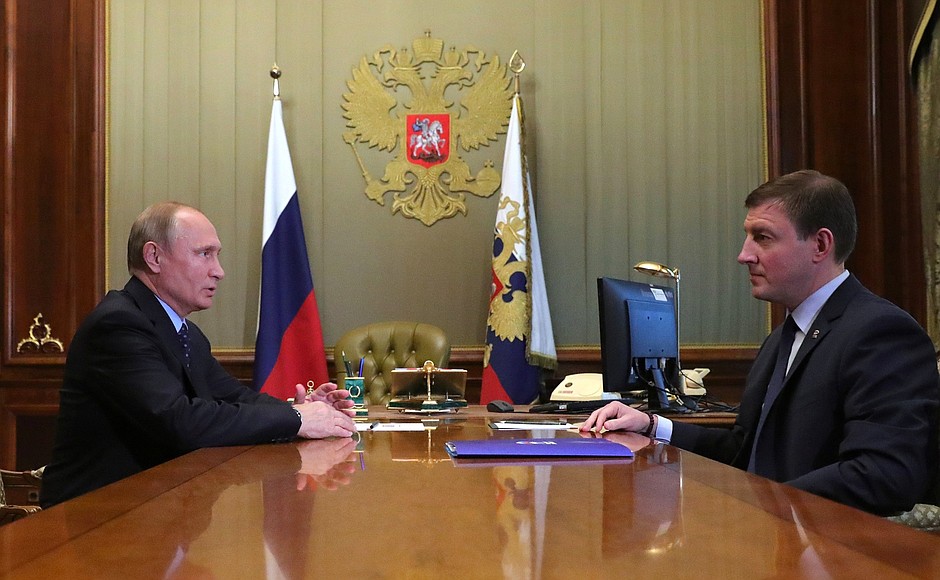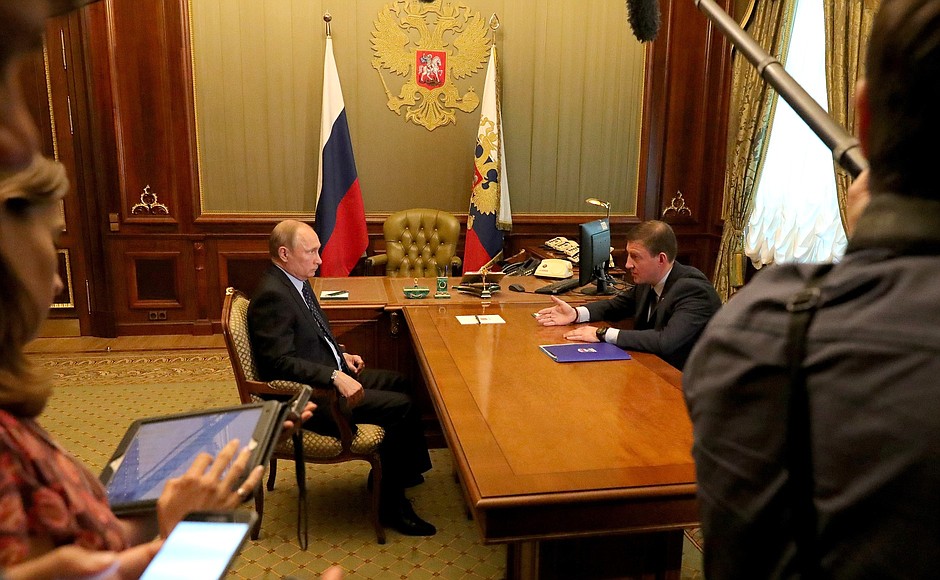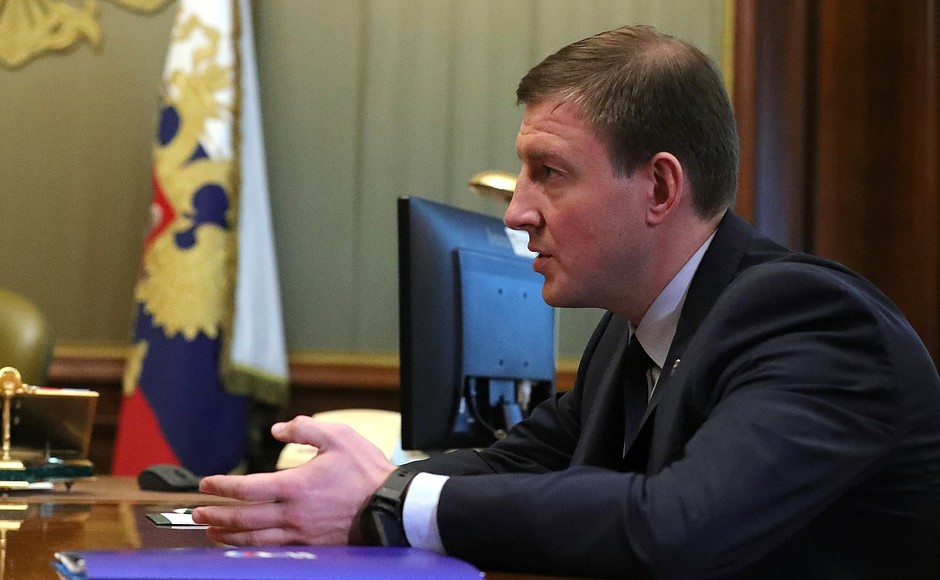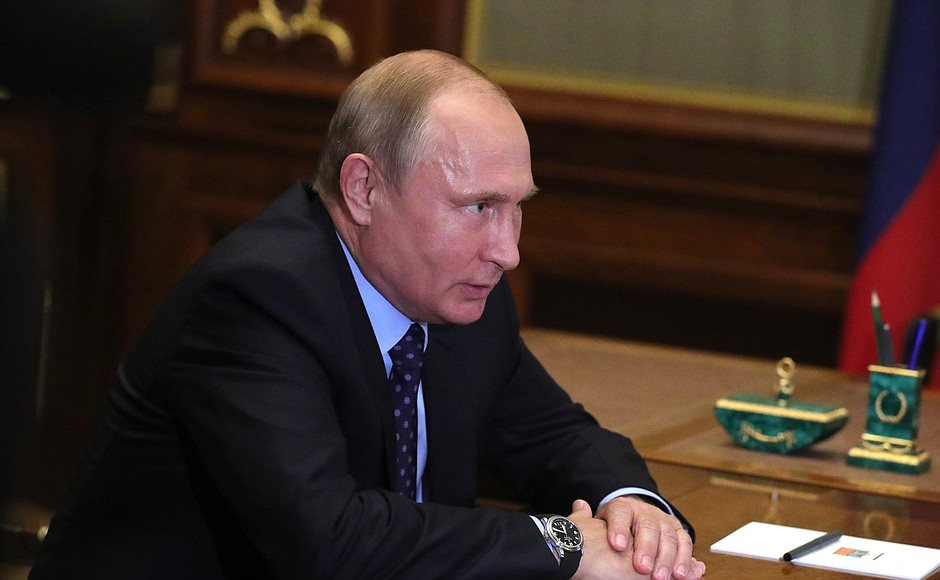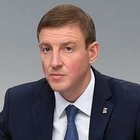President of Russia Vladimir Putin: Mr Turchak, major party functions have been held recently. There will be elections in a large number of regions of our country in September. I am aware that United Russia is getting ready for them. Let us talk about this.
Secretary of United Russia General Council Andrei Turchak: Mr President, a large party conference was held on Monday, which was a new format for us. The conference was preceded by discussions in the regions with the participation of over 30,000 party members, supporters and experts. Of course, they discussed progress in implementing the Presidential Address to the Federal Assembly and the new May executive order.
There was an extensive discussion. Speaking about the development of the party, we remember what you said: the party should not become a monument to itself; it should evolve, and adequately respond to our citizens’ requests. Therefore, we agreed on several innovations during the conference.
First, we will develop a performance evaluation system for our deputies at the federal, regional and municipal levels. In addition to the results of their activities during the election campaign, the evaluation will include their activities between elections. We introduced a ban on deputies delegating their aides to receive citizens. The deputies themselves must be present. The only exception was made for State Duma deputies, because they work in the regions as part of regional weeks, and, accordingly, will have the opportunity to meet with constituents remotely.
We also hear and understand citizens' request for fair treatment, so we will also monitor compliance with ethical norms and ethical behaviour of our MPs and fellow party members. We will respond to violations in the strictest manner, up to expulsion from the party. Indeed, there are instances where deputies show up before their constituents only during the campaign period, advance their programme, give their stump speech and then vanish for the next four to five years. This is unacceptable.
We have discussed in the regions your Address to the Federal Assembly, the May executive order and the guidelines that you formulated in these two documents.
What are the most pressing issues for our people? First, there is the issue of wellbeing, which we differentiate from prosperity. Wellbeing is a much broader concept. It is important for people to live in a comfortable environment where they will have a kindergarten, school and hospital within walking distance. We have started discussing this issue, in part, the so-called standard of wellbeing. We will continue talking about it in the course of the election campaign and discuss it in the regions during the September election cycle.
One of the concerns is lack of personnel, primarily in healthcare. Naturally, in this respect we should enhance the efficiency of targeted personnel recruitment. Once again the issue that is discussed in the regions – and we are collecting proposals from our regional affiliates – is to resume the discussion of the possibility of assigning publicly-funded graduates of medical universities to certain locations. This is a somewhat contentious issue and, naturally, it requires further discussion. However, in cooperation with the Minister of Healthcare and the Ministry of Education, higher education in particular, we will monitor this issue in the regions and also suggest concrete solutions.
Dumpsites and the demand for clean water are also pressing issues for the regions. In this context, the conference resolved to launch a new party project called Clean Country. It provides for feedback and environmental monitoring. Not all regions have adopted territorial systems of handling solid waste. The party will oversee this matter directly. We will bring adoption of these systems to 100 percent in the majority of regional parliaments. The systems must be transparent and discussed with the population. This is the feedback we are talking about.
As for the September election cycle, this is going to be a large campaign. Elections at various levels will be held in 42 regions. Deputies will be elected to legislative assemblies and dumas of administrative centres. They will compete for over 1,200 seats. For the first time the party has launched an open procedure for selecting its candidates, the so-called intraparty voting.
I must say competition is high – over five candidates to a seat. This reflects trust in the transparency of this process. Therefore, we choose the best at the stage of preliminary selection and then they participate directly in the election campaign. In this way, we are planning to preserve a majority in all regional parliaments.
We are facing big challenges and are ready to meet them, realising that September 2018 will be followed by preparations for Duma elections in 2021.
Vladimir Putin: The best way of preparing for the State Duma elections is active efforts to resolve the problems on which we worked in the past and find the solutions our people expect.
I hope the entire party structure will be oriented to this practical work.
Andrei Turchak: Absolutely.
Vladimir Putin: Thank you very much.
<…>
